
The UN’s Special Rapporteur on Freedom of Religion or Belief, Nazila Ghanea, joined Article18’s director, Mansour Borji, and two Iranian Christian survivors of persecution, Mojtaba Hosseini and Sara Fooladi, for the UK parliament presentation of our joint annual report last week.
The 22 March event was hosted by Fiona Bruce, the UK Prime Minister’s Special Envoy for FoRB and chair of the International Religious Freedom or Belief Alliance (IRFBA).
The main contributions of the speakers are summarised below.
Fiona Bruce
Opening the meeting, Ms Bruce said: “The Islamic Republic of Iran, as we know, is a signatory to the International Covenant on Civil and Political Rights, the ICCPR, which articulates a right to have or adopt a religion or belief of one’s choice, and to publicly manifest that in worship, observance, practice and teaching. But we know that that is far from what is happening in practice in Iran today, and indeed has been the case for a very, very long time.
“Last September, mass protests erupted following the death of Mahsa Amini, murdered because she was deemed to have failed properly to adhere to the dress code of the majority faith, a dress code that had been imposed for almost 44 years on Iranian women of all faiths and none. And of course, we all know what’s happened since then. Many protests, many brave people; some have lost their lives. And we have some brave people here today.”
Mansour Borji
Mr Borji began his speech by outlining the major findings of the report, before highlighting the cases of Joseph Shahbazian and Anooshavan Avedian, two Iranian-Armenian pastors sentenced last year to 10 years in prison for holding prayer meetings in their homes, and Christian convert Malihe Nazari, who is now serving a six-year sentence.
“Yesterday afternoon, as I landed at Heathrow, I discovered that Malihe was recently given a three-day leave from Evin Prison to visit her son, who is fighting in an aggressive form of cancer,” Mr Borji said. “She was asked to return to prison on the Iranian New Year Day.”
Mr Borji also highlighted the cases of Homayoun Zhaveh, a 64-year-old with advanced Parkinson’s disease, and his wife, Sara Ahmadi, who are serving a combined 10-year sentence.
“At the start of the New Year, those Christians and many others like them, and also those from other religious minorities across Iran, are missed by their loved ones around the festive haftsin table,” he said. “We continue to see the incredible courage of the Iranian Christians and other oppressed religious minorities standing strong, despite the real risk of arrest, detention, imprisonment, and even execution, but they need our support.”
Mr Borji ended by highlighting three of the recommendations given in the report: to “call on the Government of Iran to uphold the right to freedom of religion or belief for every citizen; release immediately and unconditionally all Christians detained on charges related to their faith or religious activities; and cease the criminalisation of church organisation and membership, allowing Christians of all ethnic backgrounds to worship freely and collectively, as Persian-speaking Christians still have no place to worship”.
He concluded: “We would like to British government and distinguished members of this house to firmly stand with the Iranian people, calling for a hopeful future where the right to freedom of religion or belief is respected for all. This will truly be a happy Nowruz, or ‘new day’.”
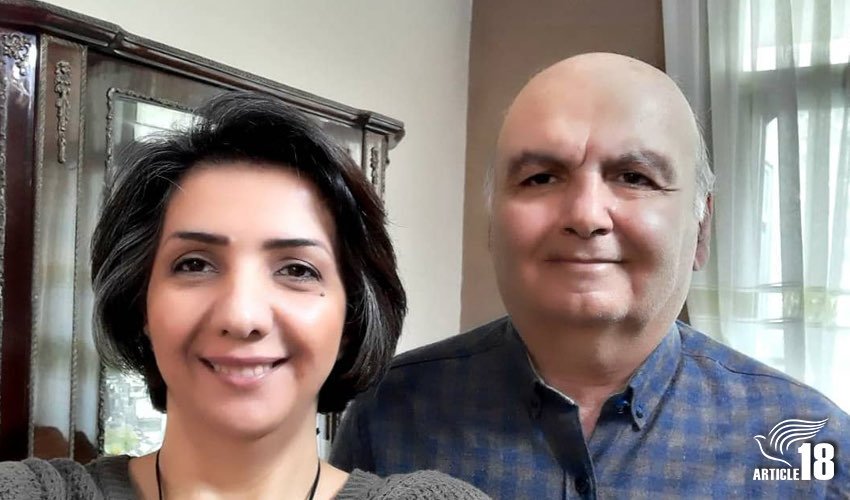
Mojtaba Hosseini
Mojtaba, whose Notes From Prison are being published on Article18’s website, described his journey of coming to faith in Christ, and his subsequent arrests and more than three years’ imprisonment.
“I was 18 when I converted to Christianity, alongside a couple of family members, including my dad,” he explained. “As we were keen and needed to learn more about our faith and how to practise it, we went to the official church building in our city, Shiraz. But unfortunately, they didn’t welcome us, as the government had banned Persians from taking part in the official church gatherings of Armenian and Assyrian Iranians.
“Farsi-speaking Christians like me have no place to worship in Iran, so we, with other Christian families, had to gather in our own houses. As a result, when I was 20 years old, I was arrested in my house with other Christian family members, without legal procedures.
“They put handcuffs on me, they blindfolded me, and put me in a car and took me to an unknown place. And I was put in a solitary confinement for 22 days, with many heavy interrogations, and threats of torture and death.”
A year later, Mojtaba explained, he was given a suspended sentence of eight months on charges of “propaganda against the government by cooperating with foreign organisations”.
“They said I was cooperating with organisations being supported by Israel, the US and sometimes the UK,” he recalled.
“After that, we were constantly under intense surveillance, such as our phones being tapped, as we continued to gather in our own houses secretly and worship our God, as there was no place for Farsi speakers like us to worship God.
“It led to another arrest when I was 24. This time, after over a month being in solitary confinement, with heavy interrogations, and lots of mental and emotional torture from the interrogators and also the jail guards, they sent me to the public prison, with no kind of official court sessions or legal procedures, such as no right to have a lawyer.
“And they transferred me to this public prison of Shiraz, called Adel Abad, with 8,000 prisoners in it. And I was kept there for three years, among dangerous criminals, in terrible conditions.
“For 20 months, I didn’t even know how long my sentence was, and how long I would stay in this prison. It was not legal to keep me for so long without giving me a sentence. And it was an incredibly painful time as I waited.
“And finally, after 24 months, my final sentence was three years and eight months in prison on charges including ‘creating illegal groups’, which was our just simple gatherings, peaceful gatherings, worshipping God together, and also charges like ‘threats against national security’.”
Mojtaba said that even after his release “I was forced to leave Iran and I became a refugee in Turkey, which continued the pain and suffering my family and I had to bear for my faith”.
“For every individual who faces persecution such as this, it’s not only about the individual, but also a large group of people around them, such as family and friends, who suffer in some ways more,” Mojtaba said. “The simplest rights in life become the most prominent wishes for these people: for example, a simple hug from my mum, and not to be able to see my nieces and take them to the park and buy them an ice cream. And it is just because [of] these people’s faith, belief in God, in Jesus, a God who they like to worship.”
Mojtaba ended with a question: “What is the solution for these people? Some Christian Iranians are disappointed in international support; we can’t see the improvements.”
But he added: “Many people at the moment have put their hope in brave men and women who are protesting against the oppression of the dictatorship regime. And we as Christians also hope in this revolution of women, life, freedom, [and] under the umbrella of that hopefully Christians can practise their faith freely in future.”
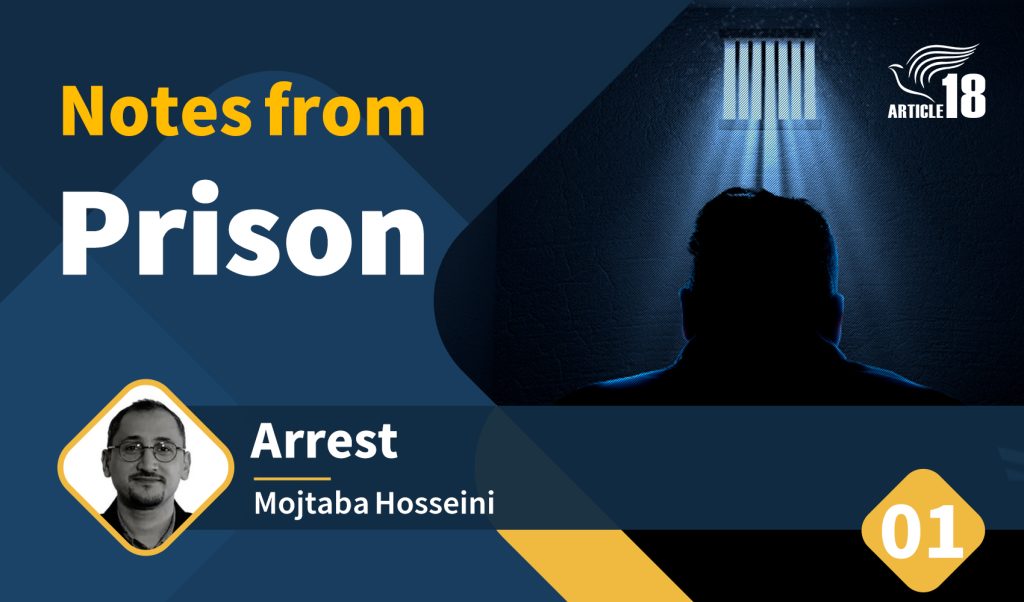
Sara Fooladi
“My story begins when I became a Christian in 2000 and joined a house-church,” Sara explained. “We used to gather in a house-church, because as Christian converts we were not allowed to attend the official church buildings of Armenian and Assyrian Iranians. We had no place to worship, except in each other’s houses.
“Gathering with others in these circumstances was always full of fear and trembling, because the government thinks such gatherings are illegal, and considers them a crime: a crime that carries heavy penalties of up to 10 years in prison.”
Because of the constraints, Sara explained how converts “try to gather in a safe way, and in small numbers to worship; they have to sing songs in a low voice, communicating over the phone with code words. We could only obtain a Bible after looking everywhere to finally get hold of a copy through risky ways, and after many complications, as the Bible seems to be considered a forbidden book in Iran”.
“I know that this story of my arrest for worshipping in a private gathering in a house may be astonishing to you and hard to believe,” Sara said. “Our home church was a normal, peaceful gathering of Christians like the thousands of Bible study groups that are held in this country every day. We prayed, sang Christian songs, studied the Bible together, and tried to meet the needs of each other and the community around us.
“However, one day in February 2013, as we gathered together to share fellowship, suddenly 13 officers stormed the house, without showing any court order. They insulted us, threatened and shouted abuse at us. They terrified us; they treated us like criminals! They handcuffed us and took us to the detention centre without even letting us inform our families.
“They put us in a cell so dirty that I got lice in my hair, and they cut my hair. They took us for interrogations from the evening to the next morning, until the point of exhaustion.
“We experienced all kinds of white torture. They played the sound of torture of [other] prisoners, which was a technique to create terror in us. There was a lot of pressure on us because they threatened not only us, but also our families.
“In court, when the judge heard about the social activities of our church, he was very impressed. Nevertheless, under the pressure of the officials of the Ministry of Intelligence, he was forced to issue a prison sentence for us. He told us: ‘I respect you! You are honest, honourable and useful people for the society, but I have to issue these sentences.’
“After our temporary release, we went to some important government institutions and said: ‘We are ready to go to prison for becoming Christians, but we disagree with the accusations made against us. We did not act against national security. We did not violate the civil laws.’ But none of these institutions had the power to challenge the order of the Ministry of Intelligence.”
After two other church members were arrested, Sara explained how she was “forced to leave Iran, in tears”.
She concluded: “One day Iran will be free and the world will be in awe of the valuable social service that Iranian women converts to Christianity have taken despite many restrictions. I am happy for the people of my country, who, hand in hand, are dancing to freedom today with a new awareness. Hoping for a prosperous, and free Iran.”
Nazila Ghanea
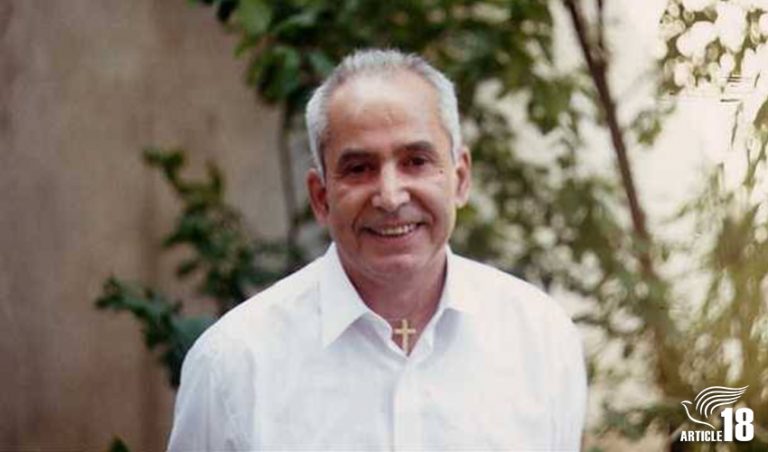
Ms Ghanea began her speech by referencing the murders nearly 30 years ago of pastors Mehdi Dibaj – who was sentenced to death for his “apostasy” – and Haik Hovsepian, who successfully campaigned for his friend’s release but was killed three days later.
“This kind of cynical playing with public sentiment, playing the media, trying to accuse falsely Christians of these heavy crimes has been going on for many, many years,” she said.
And while Christians are one of only three recognised religious minorities in Iran, Ms Ghanea noted that “it is also blatantly clear that that recognition does not apply to evangelical Christians [or] to converts”.
Even the recognised Christians of Armenian and Assyrian descent face “discriminatory treatment”, Ms Ghanea said, but separation along ethnic lines “became a way to sift the acceptable yet discriminated Christians from those that may [be converts]”.
“I don’t know what this great fear of converts is [about],” she said, “but it’s very real.”
Ms Ghanea referred to her own experiences in the mid-90s of seeing guards in Isfahan “standing outside the churches, checking IDs to allow ethnic Christians in, and to demand that Christians use a language other than Persian,” which she said was “effectively a total prohibition and ban on Christian [converts] going to church – churches that are allegedly recognised, but access to it is monitored and banned”.
“Effectively, we should say that Christian converts, and Christians that have Persian as their language and are not ethnically distinct, are also not recognised,” she said. “That’s what we see [in] practice.”
There’s “certainly no equality or non-discriminatory treatment” even for recognised minorities, Ms Ghanea said, adding: “Even their MPs are forced to be parachuted around the world, and to say that they are, for example, ‘the freest Jews in the Middle East’. I don’t know who buys that, but there is pressure even on their MPs to become part of the PR machine, let alone the non-recognised.”
Ms Ghanea also noted that, until the mid-90s, the Christian community “did not want their case raised in UN fora”.
“I understand it’s for each community to decide how it wants to champion [their] human rights,” she said, “and perhaps all possible domestic channels had been exhausted and it was then out of desperation, really, that the case then came to the UN, and it has been on the agenda since then, fairly consistently.”
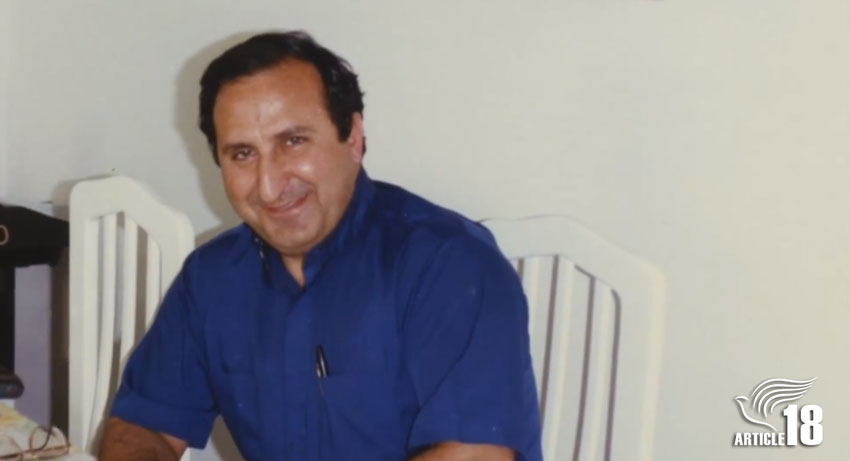
Ms Ghanea bemoaned that the last time the Special Rapporteur on FoRB was allowed access to Iran was in December 1995, when “Professor Abdelfattah Amor visited Iran for roughly 10 days, went to three cities; he had some 40 recommendations. All of them remain valid today; progress has not been made on any of them. Many of them have become much more alarming since then.”
Ms Ghanea added that Christians are not just being “seriously” deprived of their right to freedom of religion, but also to other rights such as to “due process, no torture, access to a lawyer, non-discrimination, the rights of women and girls … freedom of expression”.
Ms Ghanea noted that “it hurts even more” for Christians’ real “crimes” to be cloaked under false charges such as “acting against national security”.
“Your [real] crime is that you are Christian; your crime is that you have Christian literature; your crime is that you gather with other Christians in house-churches; and your crime is that you converted,” she said.
The special rapporteur said the recent changes to Articles 499 and 500 of the penal code were “particularly alarming because they are yet another layer of efforts to clothe the the real crimes against Christians and other religious minorities, and they are being clothed in legality. And we do not fall for it, and we must make sure that nobody else falls for it.”
Ms Ghanea also called on Article18 and partners Open Doors, CSW and Middle East Concern to “give more attention” in future reports to the plight of refugees.
“Thousands are just waiting and waiting and waiting in Türkiye, with no end in sight to when they can be resettled,” she said. “We must address that, too.”
The rapporteur ended with a note of hope, referring to the establishment of the fact-finding mission to Iran in November, when cries of “zan, zendegi, azadeh” (women, life, freedom) were “echoed by many of the delegations” at the Human Rights Council in Geneva.
“The pain that Christians have suffered in Iran, unfortunately, is now being shared by many others in Iran,” she said. “And perhaps that is the beginning of a new culture of human rights in that country.”
Q&A
The first question came from CSW president, Mervyn Thomas, who asked: “What international levers are there against Iran that may be used by individual countries, like the UK, or members of IRFBA? Magnitsky-type sanctions?”
Ms Bruce said she agreed “Magnitsky-type sanctions should be used for breaches of freedom of religion or belief much more”.
“I’m hopeful that we’re on a journey with regard to those sanctions,” she said. “It’s very early days; the legislation was only introduced a few years ago, and obviously there have been some big issues to address with authoritarian countries, in particular regarding the war against Ukraine, and also issues coming out of China.
“But nonetheless, I think you’re absolutely right, that we need to keep pressing our government and other governments to use these sanctions on issues of FoRB.”
Ms Ghanea acknowledged the disappointment felt towards the UN, but said there are “many obstacles” and that the UN’s hands are “tied in every possible way”.
“The United Nations Human Rights mechanisms are those of a state-centred system,” she explained. “It is the states that decide them, and if they are not inclusive enough, that is precisely the reason.
“UN Human Rights mechanisms have some leverage if there is an independent judiciary, if there is a free media, if there is an active civil society; if the victims of human rights violations have access to individual complaints, which Iran has not allowed for any of the UN human rights treaties. There are many ifs there. If there is an independent national human rights institution. We have a national human rights institution in Iran; it is not independent. Is there free access [for] Iranian civil society to report their situation? Are the UN Special Rapporteurs – who, after all, at least we know they are independent – are they able to visit Iran?
“Again, this game that Iran plays. Iran says that there is a standing invitation for all UN rapporteurs to be able to freely visit Iran. They never allow that visit to actually take place.”
Ms Ghanea said that when violations against religious minorities were raised in a recent communication to Iran, “the response we got from Iran was a long document with many pictures of spilt blood and bodies from [the terrorist attack on] Shah Cheragh [shrine in Shiraz]. They did not actually respond to the individual communication.”
She ended by calling for more collaboration, including on resettlement of refugees.
“States should be much more joined up in all of their activities,” she said. “We don’t want resettlement to be the response to religious persecution – people should not be obliged to leave their countries – but sometimes they are forced to. And we need to look at that.
“And we need to look at all engagement with [Iran] having human rights at its heart. States have various relationships that they need and various issues that they need to have on the agenda, but human rights must be part of it. Magnitsky sanctions are certainly one of those actions. If there are any trade or other agreements raised, if there are prisoner releases; this topic should be on the table the whole time.”
The second question came from Middle East Concern’s Rob Duncan, who asked what options are available for Iranian Christians after they are arrested and released on bail.
Mr Borji said that for many people, waiting for long sentences to be handed out was in itself a “crushing” experience that “not many people can endure”, and therefore many leave the country.
“Facing the prospect of 10 years in prison is not everybody’s cup of tea,” he said, “so many of them end up in transit countries, places like Türkiye, which is a double vulnerability: being forced out of your own home and your own country, and now being in [another] country, [and] stagnant. Many refugees [have] no place to go from there, and many of them actually have expressed that ‘the pressure, the trauma we’re facing here is much more than what we have faced back home’.”
The next question came from another CSW representative, Wael Aleji, who asked: “Is there any psychological support available for victims and their families, and human rights defenders, inside and outside Iran?”
Mojtaba said his experience “hasn’t been easy” but thanked Mr Borji and Article18 for being a “constant presence” whilst he was in prison, who “became a bridge between us [who] didn’t have any voice, to all the Western churches”.
Mojtaba added that he had also benefited from Article18’s trauma-awareness course, which he said was “really helpful”, but said he knew Mr Borji was limited in terms of resources and “needs a lot of support”.
However, he added that although many people had offered psychological support, many of those did not have the sufficient experience of Iran, which he said “prevented me from sharing all my emotions, as I didn’t want to be disappointed”.
Mr Borji said he was “glad the word ‘psychological care’ is now [being] brought to our consciousnesses a lot more”, but that “the need is vast, and we do need more organisations to prepare and also offer these services”.
He added: “What we’ve done for these people – Mojtaba was very gracious – but it’s not enough.”
Ms Ghanea noted that the 22 days in solitary confinement that Mojtaba experienced itself amounted to torture.
“The Special Rapporteur on torture said a number of years ago that that constitutes torture in and of itself,” she said.
Finally, Iranian-born Anglican vicar Pouya Heidari, who shared that he was also arrested in Iran, asked what can be done to address Christians being charged with political crimes while the Iranian government is “shamelessly saying ‘there is religious freedom in this country and people are exercising it’”.
In response, Ms Ghanea highlighted the work of Ms Bruce and IRFBA, through which 42 different states are “coordinating regularly and brainstorming regularly on how to draw attention [to] and advance the rights of religious or belief minorities, and to advance freedom of belief”.
“One of the newer innovations [of IRFBA] is also to champion prisoners of conscience,” she added.
On top of this, Ms Ghanea suggested that those drawing attention to abuses of the right to religious freedom should also focus on the other rights that are being violated.
“We know that the targeting is on grounds of religion or belief, but alongside that many other human rights are being violated that also deserve attention,” she said.
“We need to be able to communicate these accounts to – if I just look at the United Nations – the Special Rapporteur on the prohibition of torture, the Special Rapporteur on minority issues, the Special Rapporteur on cultural rights, the Special Rapporteur on the independence of judges, the Special Rapporteur on upholding human rights while countering terrorism, because … when we wrote to the government of Iran regarding that case, they talked to us about terrorism. Well, even if you’re countering terrorism, and even if there were religious minorities that were amongst terrorists, they too have human rights. And we still need to uphold human rights, whilst countering terrorism. I know it’s fake, but I’m just saying: even in those instances, there are rights to be upheld.”
Ms Bruce ended the meeting by reassuring the audience: “I don’t attend these meetings just to listen and then walk away. I always aim to undertake some action as a result.”
The Special Envoy then pledged two pieces of action: “to have a meeting in the Foreign Office regarding this [report], and to look at how our international alliance can better network support for human rights defenders.
“And let’s see what we can do as an international alliance of 42 countries to draw together that support that’s available, and ensure that, where possible, it may be better resourced.”
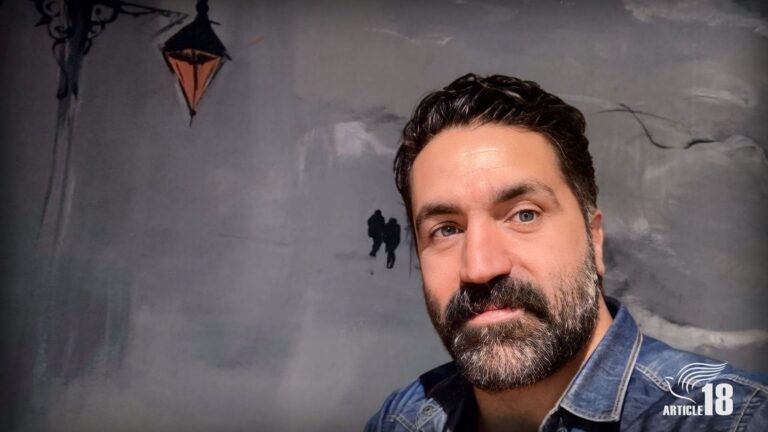
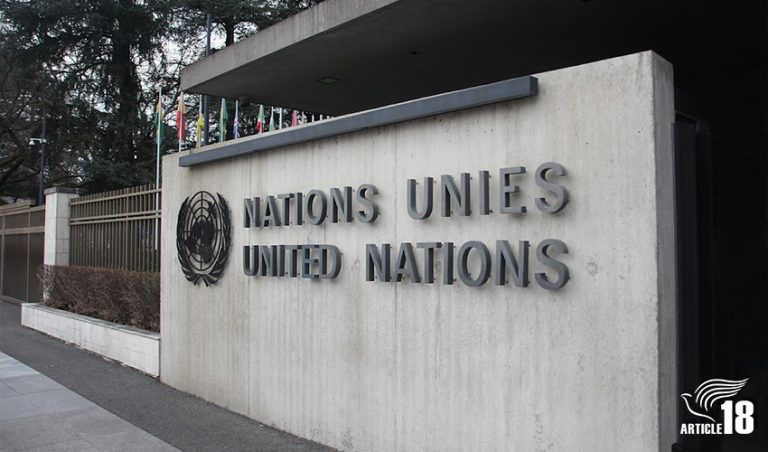
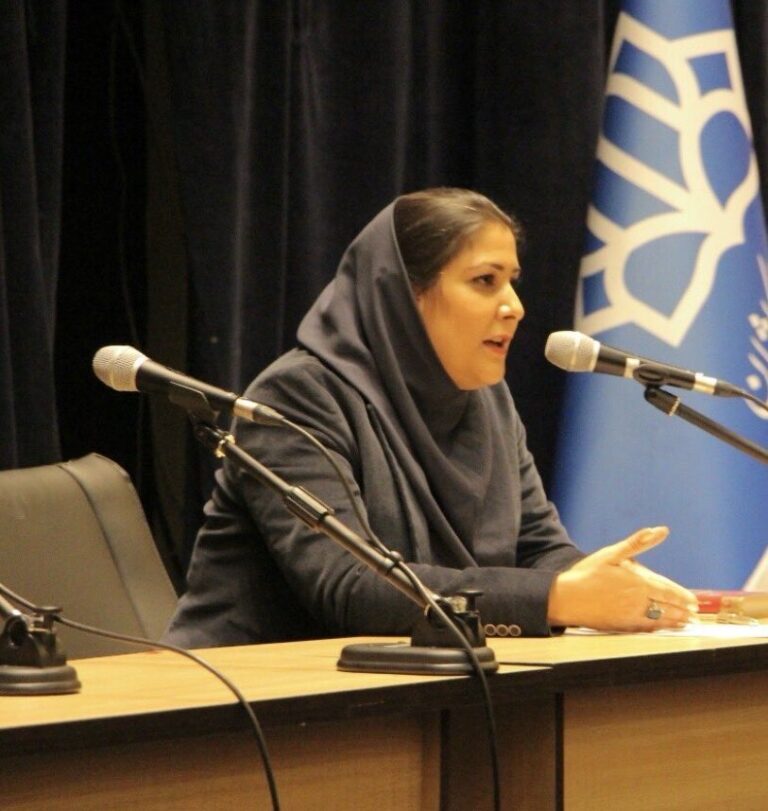
0 Comments
Trackbacks/Pingbacks